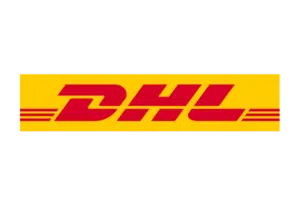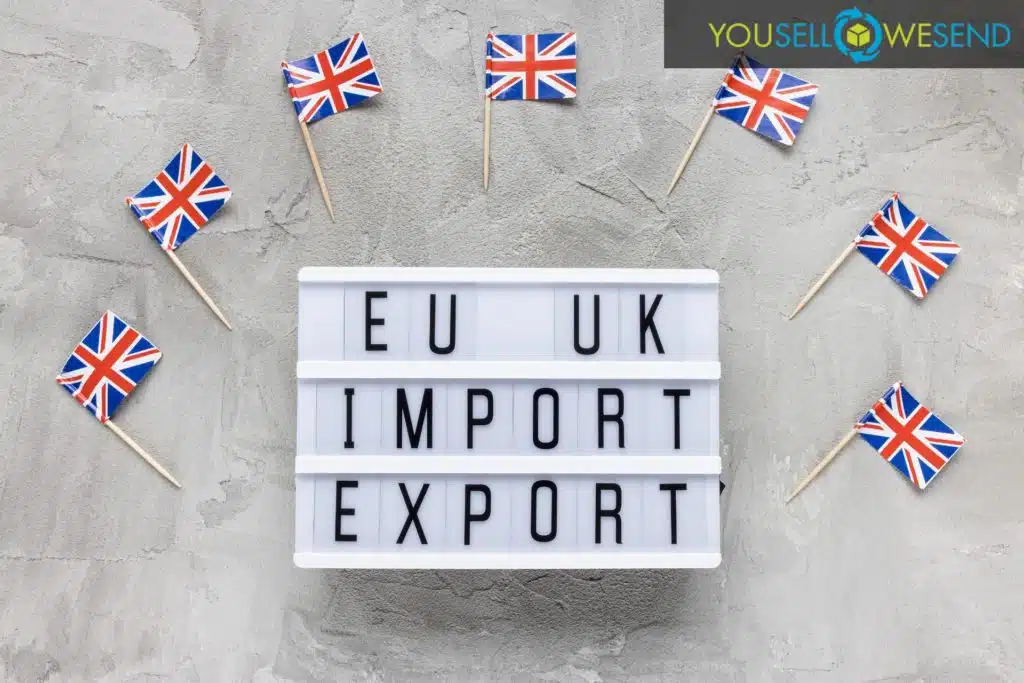Important information on shipping to non-EU countries
The United Kingdom (UK) left the EU on 31 January 2020 and the trade agreement negotiated between the EU and the UK provisionally entered into force on 1 January 2021.
In principle, zero tariffs and zero quotas apply to goods of EU origin that are exported to the UK. The same applies to goods of UK origin that are imported into the EU. Exceptions apply to some product groups.
Despite the agreement, all goods to and from the UK are subject to customs inspection. It is therefore necessary that you provide us with complete and correct data on your shipments to and from the UK so that we can forward your shipment smoothly.
As part of some changes regarding the shipping service providers newly connected by YSWS (DPD and GLS) as of 1 December 2020, and also to the service providers you have connected yourself, we would like to urgently draw your attention to the correct documentation for all export shipments in general. Otherwise, the shipments will not be delivered properly and may even incur costs for the return transport.
Please check the correct documentation for your export shipments in advance. You can upload these documents via the dashboard for the relevant shipment.
IMPORTANT: Goods cannot be dispatched without these documents!
Here we provide you with comprehensive information about the connected shipping service providers. If you are not sure which service provider you are using, please ask us.
Fundamentals:
An export occurs when goods are shipped from a third country to the EU (returns) or from the EU to a third country (dispatch).
The amount of customs duty to be paid is based on the so-called customs tariff, which is standardised throughout the EU.
Shipping with DPD

Brexit:
An import VAT registration is required for the export of goods with a value of
of ≤ GBP 135.00 to buyers in the UK required.
- The British government requires the UK to apply to leave the EU.
- The periodic payment of VAT and customs duties is made directly to HMRC (UK
customs authority). Pre-registration is absolutely necessary for this. Please register on the HMRC platform (Her Majesty’s Revenue and Customs ➔ Her Majesty’s Revenue and Customs) and then state the registration number you receive there next to the EORI number on all invoices!
- Further information and registration can be found here.
In general, the following requirements and details are essential for export shipments with DPD:
- A product always has a value, even if it is only a sample. This value must always be specified and transmitted electronically from the shop. Please note: VAT must not be shown!
- A commercial invoice is issued if the goods have a commercial value. Up to an invoice value of: € 999.99 an invoice (commercial or pro forma invoice) is sufficient. From an invoice value of € 1,000.00, an export declaration is required.
- The export declaration must be made in advance, i.e. it must be confirmed in advance by the customs office responsible for the sender.
- Exceptions: When shipping to certain countries, e.g. Norway, an export declaration is always required. The 999.99 euro limit does not apply!
- A pro forma invoice is created if the goods have no commercial value. Example: Sample.
- Terms of delivery (franking) determine which ancillary transport costs are borne by the sender and recipient. The postage must always be stated on the documents. Additional fees, taxes and customs duties may apply outside the EU. DAP customs cleared is always used as standard if the sender has not specified any other details on the invoice.
Documentation for the invoices (commercial or pro forma invoices):
- An EORI number of the consignor is always mandatory! You can apply for this at the relevant customs office.
- The UID number (company identification number) for shipments to Switzerland and Liechtenstein
- Exact description of goods (customs tariff number if possible)
- Please always send the customs invoices to DPD in triplicate.
The detailed content for creating the documents and all other information for export shipments can be found here.
DPD information specifically on Brexit can be found here.
Here you will also find a checklist with all the necessary information on the documentation of export shipments.
Shipping with GLS

Changes for UK shipments after Brexit:
On 1 January 2021, the United Kingdom (UK) was granted the status of a third country under customs law from the perspective of the European Union.
In addition to the general information listed below for the required information for the export documents, the following information must also be included for shipments to the UK:
- UK-VAT-Nummer bei Nutzung des Incoterm 18 (DDP, VAT Registration Scheme) Frei Haus, verzollt, versteuert (also die Standard-Frankatur).
- The shipper pays freight and customs clearance. Taxes are paid either by the importer or the shipper after registration in the UK. Customs duties do not apply.
- Für Pakete mit einem Sendungswert von maximal 135 GBP. ist die Nutzung des Incoterm 18 für kommerzielle Versender vorgeschrieben.
- Die Einfuhrumsatzsteuer wird direkt an die britischen Finanzbehörden (HMRC) entrichtet. Dafür ist ggf. vorab eine Einfuhrumsatzsteueranmeldung auf der Website der britischen Regierung https://www.gov.uk/ erforderlich.
- The consignments undergo a customs clearance and inspection process, for which GLS charges fees. No customs duties are incurred.
- Further frankings (for a value of goods >135 GBP) are listed in the link below. The standard here is DDP
- Für jede Rechnungsposition müssen übermittelt werden:
- All goods tariff numbers (totalled)
- the gross and net weight
- the exact description of the goods
- the origin
- the value including currency
- If the same goods tariff numbers with the same origin/country of origin are listed several times on an invoice, a grand total of the gross and net weight, the value details and the number of goods must be entered for each of these goods tariff numbers.
- When the value of goods reaches €1,000, shippers in Germany require an electronic export declaration for parcel transport to the UK
- Abolition of the exemption limit with Incoterm 50. According to a decision by the UK government, the exemption limit (Incoterm 50) is expected to be abolished from 2021. In principle, all goods will then have to be cleared through customs, regardless of how low the value of the goods is.
Depending on whether you are shipping to commercial or private recipients and how high the value of the goods is, the British government prescribes different rules when choosing the Incoterms. The links below to the GLS information provide you with an overview of all available Incoterms.
Generally
No customs documents are generally required when shipping goods to EU countries. For air freight shipments to Malta, a delivery note must be enclosed with the goods. In addition, you will need special shipping documents for various territories that are not part of the Community territory under VAT law (e.g. Canary Islands) and for international parcel shipments to countries with their own customs jurisdiction (e.g. Gibraltar, San Marino, Andorra) (see information from the links below).
Members of the European Free Trade Association EFTA are Norway, Liechtenstein, Switzerland and Iceland. All other shipping destinations are third countries from an EU perspective.
The following requirements and details are essential for export shipments with GLS:
- Bei einer Export Sendung (Kundenbestellung) muss automatisch die Frankatur (wer trägt die Kosten für die Verzollung) mit übermittelt (ggf. automatisch aus dem Shopsystem) werden. Bei Exporten fallen neben den Versandkosten weitere Gebühren an – etwa für die Zollabwicklung oder die Einfuhrumsatzsteuer. Die Frankatur legt fest, welche dieser transportnebenkosten der Versender und welche der Importeur trägt.
- Example: (Standard) franking 10 (DDP): Free domicile, duty paid, taxed – the sender pays all costs incurred, the importer bears no costs.
- Please always state your EORI number (Economic Operators’ Registration and Identification) on your export invoice. You can enter your EORI number
at German customs.
- Für den Versand in EFTA-Staaten und Drittländer wird eine Handelsrechnung in dreifacher Ausfertigung benötigt (Original plus zwei Kopien), für den Versand per GlobalExpressParcel in vierfacher Ausfertigung (Original plus drei Kopien) auf Englisch. Für Großbritannien, Norwegen und die Schweiz ist nur die Originalrechnung erforderlich (keine Aufsatzkopien). Die Handelsrechnung muss folgende Angaben enthalten:
- Name and address of the sender with telephone number and e-mail address
- EORI-Nummer des Versenders
- Name and address of the consignee with telephone number, e-mail address and contact person
- Delivery address, if this differs from the billing address
- Invoice date, number and location
- Bezeichnung und Anzahl der Waren mit dazugehörigen Zolltarifnummern und jeweiligen Werten
- Value of goods (with currency) – Attention: No VAT may be shown!
- Delivery condition/franking: A franking determines which costs (taxes, customs duties, customs clearance) are borne by the sender and which are borne by the recipient. You can find an overview of franking in the link below.
- GLS parcel number(s)
- Weight (gross/net)
- Declaration of origin (for further information, see p. 4)
- Company stamp and signature as well as name in plain writing
- All these details are also absolutely necessary for sample or gift consignments and deliveries without invoicing. In addition, the value must be stated, e.g. with the note ‘Sample or gift consignment – value for customs purposes only’
Here you will find further useful information on international export shipping with GLS.
Shipping with DHL

In general:
Customs documents must be enclosed with every DHL Paket International parcel for shipping to non-EU countries or EU exempt territories and to third country territories.
Please note that DHL Parcel International is an individual parcel product. Individual customs documents corresponding to the contents must be enclosed with each package. The combination of goods from different packages in one
invoice document is not permitted. Furthermore, there is a legal obligation to electronically declare defined goods for export to customs prior to export.
Below you will find helpful tips on the topic of export declarations:
- The exporter or his representative undertakes to declare the goods electronically to the customs office of export before handing them over to Deutsche Post AG if they are postal consignments (e.g. DHL Paket International).
This concerns:
- Goods for commercial purposes whose total value (including shipping costs) exceeds 1,000 euros or
- goods for which the granting of export refunds, other amounts or the reimbursement of duties is provided for or has been applied for, which are subject to prohibition or restriction measures, with an export licence requirement, manufacturing documents and technologies based on provisions of foreign trade law and acts of the Council or the Commission of the European Communities, or
- are subject to other formalities (e.g. requirement of an export licence, statistical formalities).
- The electronic export declaration must be made via the Automated Tariff and Local Customs Clearance System (ATLAS) or the Internet Export Declaration Plus (IAA Plus).
- If you use DHL online franking (large letters or Warenpost), a CN 22/23 document will be filled automatically according to the information you provide in your order. The CN 22/23 are then generated when the label is created.
- Die elektronische Übermittlung der Daten an die Ausfuhrzollstelle erfolgt in der Regel bei DHL elektronisch durch eure Übermittlung der Daten aus dem Shopsystem an YSWS. Diese müssen zwingend folgende Angaben beinhalten:
- Full address of the sender and recipient
- Type of consignment (standard: consignment of goods)
- Detailed description of the goods
- Number of goods per goods item
- Customs tariff number (HS code 6,8 or 10 digits) and country of origin of the goods
- Net weight of the goods contained in the consignment per goods item
- Value of goods in euros per goods item
- Es muss bei Exportsendungen zwingend eine Handelsrechnung (bei Warenversand) oder Proformarechnung (bei Musterversand) beigefügt werden. Folgende Inhalte sind zwingend erforderlich:
- Full address of the sender and recipient
- Type of consignment (standard: goods)
- Detailed description of the goods
- Anzahl der Waren je Warenpostion
- Zolltarifnummer (HS-Code 6,8 oder 10 stellig) und Ursprungsland der Ware
- Net weight of the goods contained in the consignment per goods item
- Gross weight of the consignment (incl. packaging)
- Warenwert in Euro je Warenposition Achtung: Es darf keine Mehrwertsteuer ausgewiesen werden!
- Total value of the consignment
- Signature of the exporter/shipper
Information about the customs clearance conditions at DHL can be found here.
Please note that this is a non-binding customs clearance overview. The contents have been compiled to the best of our knowledge and belief. However, YSWS assumes no liability for the accuracy, completeness and timeliness of the content. This overview is therefore no substitute for any legal advice that may be required.
In principle, zero tariffs and zero quotas apply to goods of EU origin that are exported to the UK. The same applies to goods of UK origin that are imported into the EU. Exceptions apply to some product groups.
Despite the agreement, all goods to and from the UK are subject to customs inspection. It is therefore necessary that you provide us with complete and correct data on your shipments to and from the UK so that we can forward your shipment smoothly.
As part of some changes regarding the shipping service providers newly connected by YSWS (DPD and GLS) as of 1 December 2020, and also to the service providers you have connected yourself, we would like to urgently draw your attention to the correct documentation for all export shipments in general. Otherwise, the shipments will not be delivered properly and may even incur costs for the return transport.
Please check the correct documentation for your export shipments in advance. You can upload these documents via the dashboard for the relevant shipment.
IMPORTANT: Goods cannot be dispatched without these documents!
Here we provide you with comprehensive information about the connected shipping service providers. If you are not sure which service provider you are using, please ask us.
Fundamentals:
An export occurs when goods are shipped from a third country to the EU (returns) or from the EU to a third country (dispatch).
The amount of customs duty to be paid is based on the so-called customs tariff, which is standardised throughout the EU.


